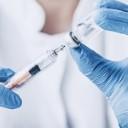-
Considering the Term “Cancer Survivor”
A study investigates how people who have been diagnosed with cancer feel about being called survivors.
by Jen Tota McGivney
-
Making Clinical Trials More Inclusive
Broadening clinical trial eligibility criteria to include cancer patients who also have other health conditions could increase trial enrollment.
by Ashley P. Taylor
-
What Do Clinical Trial Endpoints Really Measure?
A study investigates whether a commonly used clinical trial endpoint, progression-free survival, can be used to predict quality of life.
by Jon Kelvey
-
Shingles Risk Increased for Cancer Patients
A new vaccine is safe for cancer patients but hard to find.
by Nancy Averett
-
Treating Breast Cancer in Men
Hormone therapy may lengthen life in men with hormone-related breast cancer, but this treatment is prescribed less frequently for men than for women.
by Marilyn Fenichel
-
Combining Treatment With Hospice Services
Organizations are testing new models of end-of-life care that allow patients to start hospice without stopping treatment.
by Cheryl Platzman Weinstock
-
2018: This Year in Cancer News
The Cancer Today editorial staff selects some of the most interesting and impactful reporting, research and perspectives of 2018.
by Cancer Today Staff
-
The Education of a Patient Advocate
Bob Riter explains how his breast cancer diagnosis set him on a path to find his calling.
by Bob Riter
-
Caregivers Need Support Too
High-intensity cancer caregiving is associated with poor mental health, especially for caregivers who don't feel they're getting the support services they need.
by Jen Tota McGivney
-
2018 SABCS: Choosing the Right Treatment
Studies presented at the 2018 San Antonio Breast Cancer Symposium investigate when patients with early-stage breast cancer or precancerous breast conditions benefit from receiving less intense treatment.
by Kate Yandell
Cancer Talk
Study Highlights Challenges in Pancreatic Cancer Staging
Most pancreatic ductal adenocarcinoma cases initially considered to be stage I are changed to a higher stage after surgery.
by Taneia Surles
Understanding How High and Low Testosterone Levels Can Treat Prostate CancerUsing high-dose testosterone after prostate cancer stops responding to androgen deprivation therapy can stop tumor growth.
by Sandra Gordon
Financial Screenings for People with CancerCancer patients say they want to be asked about their financial needs on a regular basis.
by Pamela Appea
Let Me Tell You a Story About the Power of Medical ResearchTen-year-old Michael Methner told his story about being diagnosed with optic nerve glioma at the AACR’s Rally for Medical Research.
by Cancer Research Catalyst














